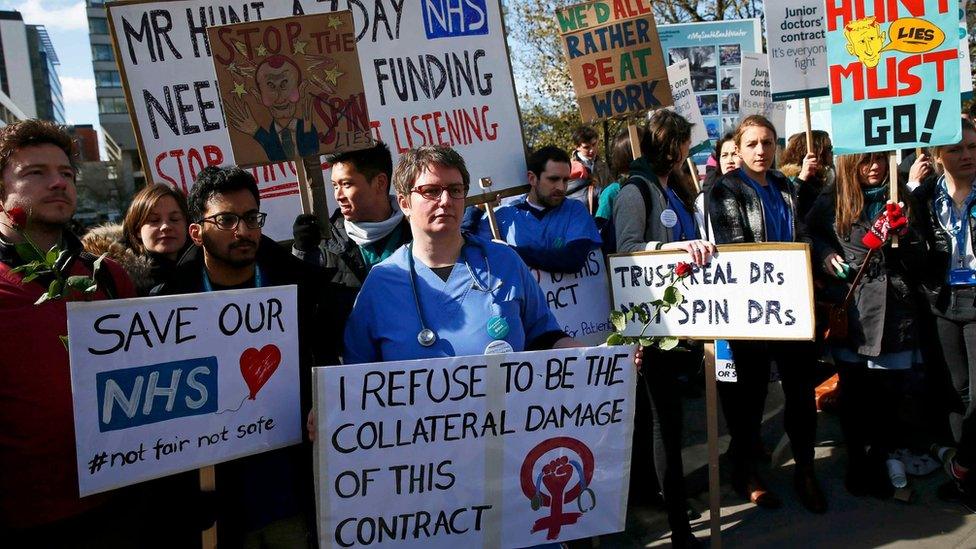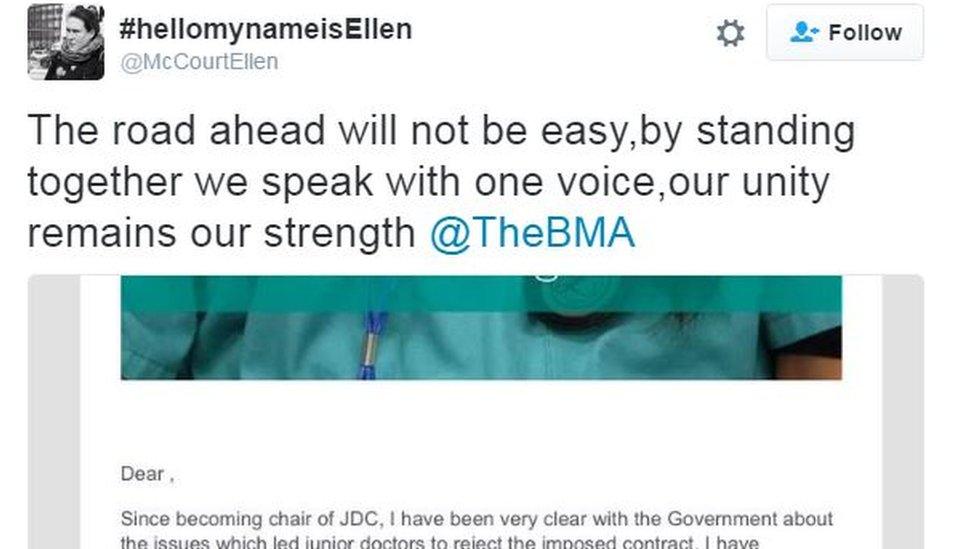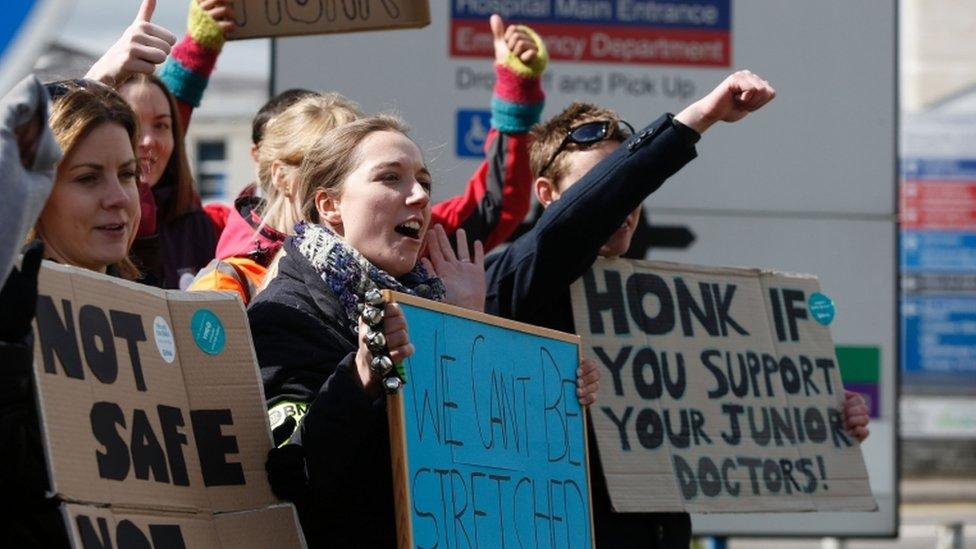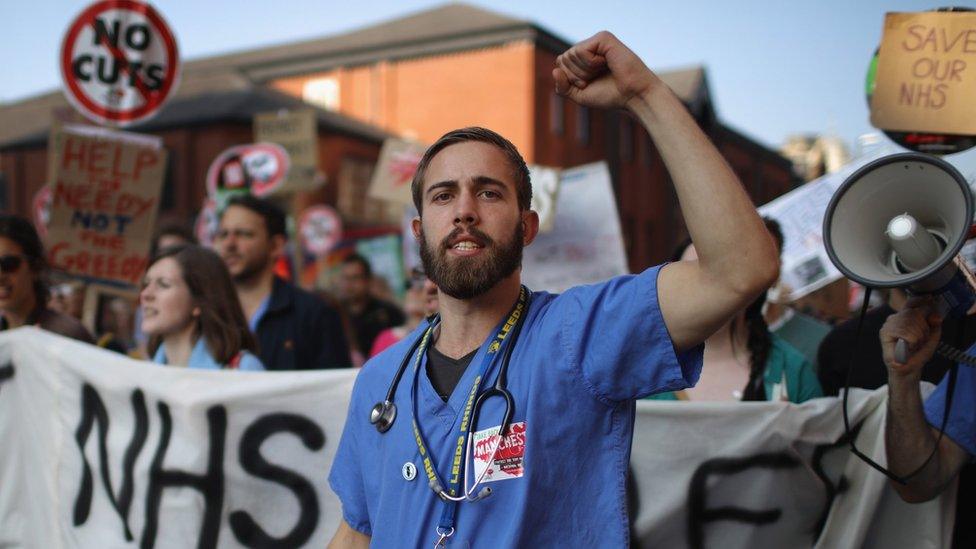Junior doctors strike: Calls for fresh industrial action
- Published

Representatives of junior doctors have called on their union to authorise fresh industrial action in their dispute about a new contract.
The junior doctors committee (JDC) of the British Medical Association (BMA) is to ask its full council to back more industrial action from early September.
The JDC says ministers have failed to address concerns about the contract.
Junior doctors and medical students voted in July to reject a deal on the contract agreed with the BMA.
It was rejected by 58% of its members who voted in the ballot.
In a letter to members released on Twitter on Thursday night, Dr Ellen McCourt, who chairs the JDC, said the government had remained "persistently silent" on issues which, she said, had resulted in the contract being rejected.
She said: "In light of this, the JDC Executive has voted to reject the proposed new contract in full and to call for formal re-negotiations on all of your concerns.
"In response to the government's silence, JDC exec has today made a formal request for a special meeting of BMA Council to authorise a rolling programme of escalated industrial action beginning in early September."
In a further statement Dr McCourt said junior doctors still had "serious concerns" about the proposed contract, "particularly that it will fuel the current workforce crisis, and that it fails to treat all doctors fairly".

Ellen McCourt released her letter via Twitter on Thursday
'Distress and disruption'
Daniel Mortimer, chief executive of NHS Employers, warned industrial action would achieve "little or nothing", but placed "pressure on already stretched teams and services and causes worry, distress and disruption for patients, carers and their families".
He said over the past two months they had been talking to the JDC and had "responded positively" to concerns "regarding the guardian role and whistleblowing".
"Employers were hopeful that the continued positive engagement on other important topics... were a sign of how serious employers, Health Education England and the Department of Health were about honouring the agreements reached with the BMA."
The dispute has led to junior doctors taking part in six strikes this year, including the first all-out stoppages in the history of the NHS.
The BMA's junior doctor leader, Dr Johann Malawana, resigned following the vote to reject the renegotiated contract, which the BMA had recommended.
He had told BMA members the deal was a good one that should be accepted, during meetings ahead of the poll of 54,000 junior doctors and medical students.
Following the vote, Health Secretary Jeremy Hunt said the contract would be imposed on medics in England.
- Published6 July 2016

- Published1 September 2016
